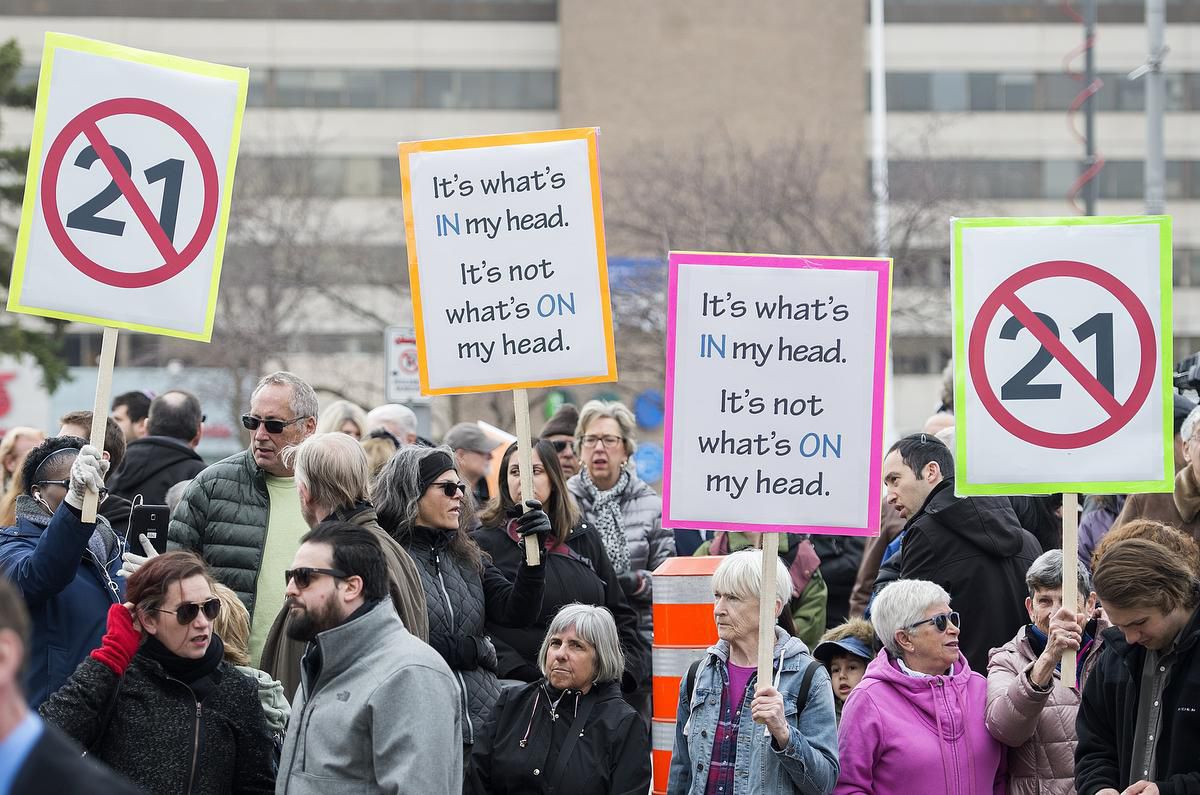Organized by a collective called “Coalition Inclusion Quebec,” over 400 people took part in the latest of many recent protests against the highly controversial Bill 21 on May 5. Those present at the demonstration linked arms around Montreal’s courthouse to demonstrate their opposition to the bill. Introduced by the Coalition Avenir Québec (CAQ) earlier this year, Bill 21 claims to promote secularism by prohibiting public employees from wearing religious garments and symbols, such as hijabs, kippahs, and turbans. Instead of fighting against it, the proposed legislation sets a dangerous precedent that normalizes hate and underscores the need to actively oppose discrimination.
Much of the discussion about the bill has revolved around its legality and political significance in the province and the country as a whole. However, when discussing the bill and its implications, it is important to remember that this is not merely a legal or political issue. Since this bill predominantly affects those who practice specific religions, namely Islam, Judaism, and Sikhism, those unaffected have a greater responsibility to understand its implications. Bill 21 would impact real Quebecers who risk being forced to choose between their livelihood and the expression of their religious identity. State secularism should never impede on the rights of an individual to express their faith.
The indirect repercussions of Bill 21, regardless of whether or not it becomes law, are just as disturbing as its direct effects. The bill will continue to promote hate and division in Quebec, and, in fact, it already has: Justice Femme, a group that provides legal support to Quebec women, has received an influx of reports of acts of both verbal and physical hate toward Muslim women since the bill was tabled in March. While this could be attributed to unrelated factors such as an increase of reporting when such incidents occur, it is likely that the bill makes the expression of discriminatory and hateful beliefs seem acceptable. Violent acts like the 2017 Quebec City mosque shooting and other hate crimes towards a wide range of religious groups have demonstrated the blatancy of Islamophobia, anti-Semitism, and xenophobia in Quebec. Bill 21 validates these dangerous prejudices instead of working against them.
It appears unlikely that the bill will affect the ability of McGill administrators, faculty, and staff to wear religious garments to work. However, this does not mean that Bill 21 will not affect our community, and it certainly does not mean that it is not our problem. McGill welcomes students from around the province, the country, and the world. For them, knowing that their identity is not accepted in their province has the potential to contribute to feelings of insecurity and unsafety that no one should have to experience simply for expressing their faith. Living inside of the ‘McGill bubble’ will not prevent our peers from experiencing hate crimes. The reality is that many students will feel even less safe when going about their daily lives should this bill become law.
Now more than ever, it is our responsibility to stand up against discrimination in Quebec. When it comes to a multitude of issues, such as climate change, young people have become increasingly tasked with mending the fractured world we live in, and this is no exception. Sadly, 18-to-24–year-olds are the only age group in Quebec that does not support the bill. Rather than sit back and watch as Bill 21 makes the province less safe, McGill students should make use of their anger and attend demonstrations, which are often publicized on Facebook. Students should write to members of the National Assembly, and confront acts of hate when they see them in public and online.








